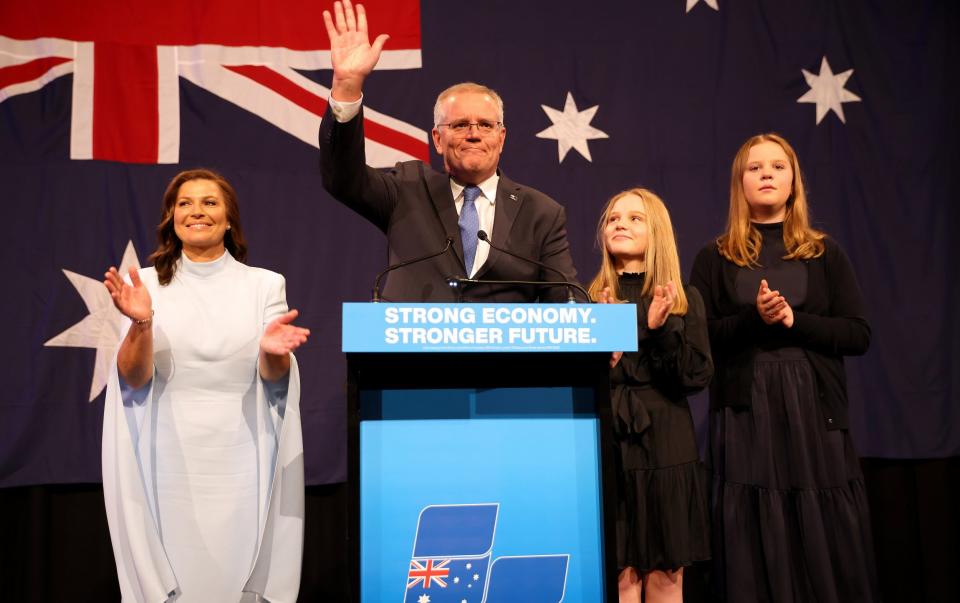Australian election 2022: Labor's Anthony Albanese claims victory over Scott Morrison

Anthony Albanese, Australia's opposition leader, has claimed victory in the country's national elections.
"The Australian people have voted for change. I am humbled by this victory," he told cheering supporters in Sydney, after Scott Morrison, the incumbent prime minister, conceded defeat.
Mr Morrison resigned as leader of the Liberal Party on Saturday, hours after voters issued a stinging rebuke of his party's inaction on climate change.
He acknowledged a "difficult" and "humbling" day for his party, which has governed Australia for the last decade.

With 55 per cent of the vote counted on Saturday, Labor had 72 seats, the coalition 52 while independents and the Greens held 11, the Australian Broadcasting Corp projected. A further 16 seats remained in doubt. The House of Representatives has 151 seats, 76 of which are needed for a majority to form the government.
Mr Albanese told reporters that he wanted to bring Australians together as he made his first comments after leading his party to an election victory.
"I want to unite the country," Mr Albanese said as he left his home late on Saturday night to attend a Labor Party celebration in Sydney.
"I think people want to come together, look for our common interest, look towards that sense of common purpose. I think people have had enough of division, what they want is to come together as a nation and I intend to lead that."
Prime Minister Boris Johnson has congratulated Mr Albanese, vowing to work together on trade and making the world "greener".
"Our countries have a long history and a bright future together," Mr Johnson said in a message, according to Downing Street.
Congratulations @AlboMP on your election as Prime Minister of Australia.
I look forward to working with you as we reap the rewards of our comprehensive Free Trade Agreement, the AUKUS partnership and the unmatched closeness between the British and Australian people.
🇬🇧🇦🇺— Boris Johnson (@BorisJohnson) May 21, 2022
With a surprisingly high number of votes going to independent candidates and minor parties, the ruling coalition suffered a dramatic fall in its primary vote, with many of its traditional supporters backing the so-called teal independents.
The teals - distinguished by their smart, aqua-toned campaign colour, and comprising mainly middle class, professional women - appear to be the big winners of this weekend’s poll.
Along with candidates from minor parties, they are expected to form a formidable cross-bench group, which is likely to double in size.
Speaking on Saturday, Simon Birmingham, the incumbent finance minister, admitted that the Liberal Party had suffered. "We are losing seats that are heartland seats – there is clearly a big movement against us," he said.

Meanwhile, Tanya Plibersek, the former deputy leader of the Labor Party, said: "The teals have struck a chord with a lot of voters."
The success of the teals, who are demanding stronger government action against climate change, reflects a significant change in public opinion in Australia, which has suffered severe drought, intense bushfires and major flooding in recent years.
Early returns suggested the Greens had also made ground, looking to pick up to three seats in Queensland.
Adam Bandt, the leader of the Greens who retained his inner-city Melbourne seat, said climate was a major issue for voters.
"There was an attempt from Labor and Liberal to bury it, and we were very clear about the need to tackle climate by tackling coal and gas," he said.

 Yahoo Movies
Yahoo Movies 
